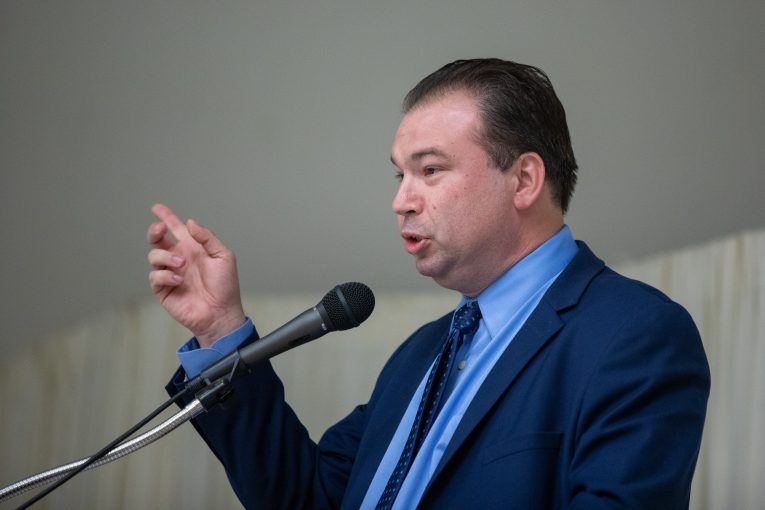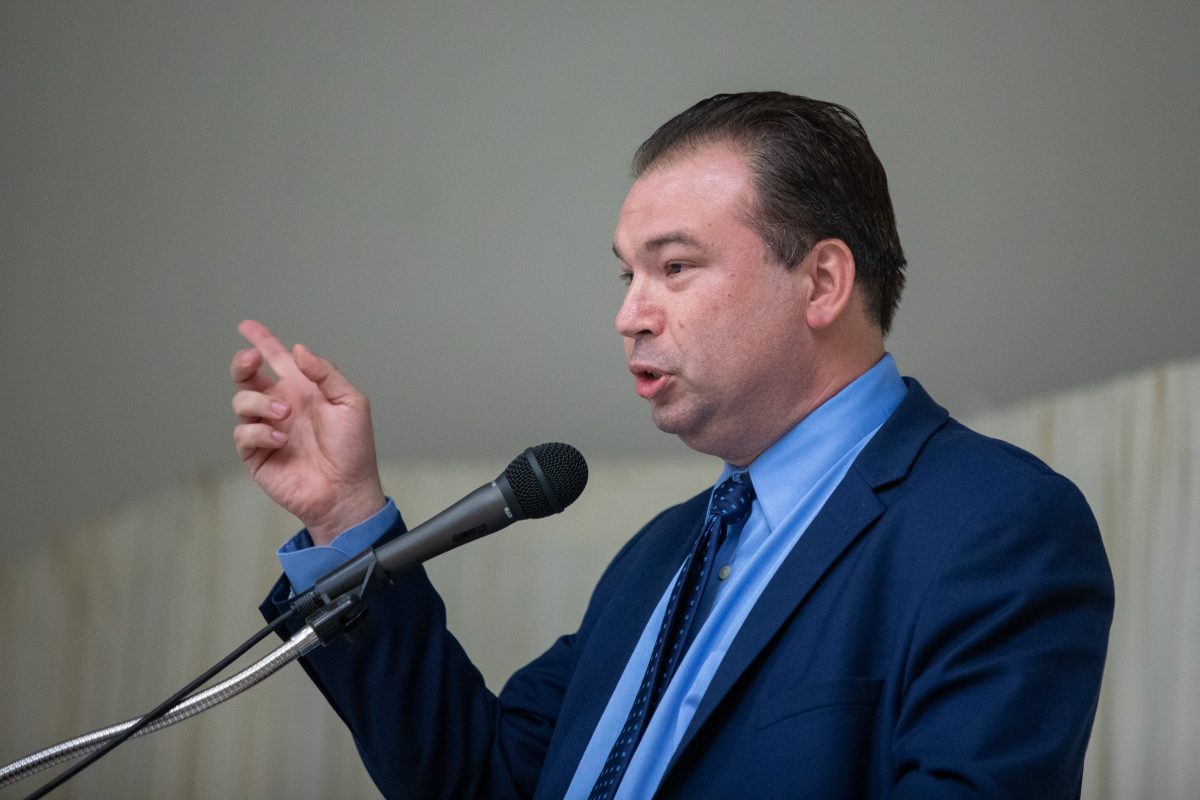

by Jeffrey Deskovic
“Looking back” will feature reprints of articles that Jeff previously wrote while a columnist at The Westchester Guardian, which encompass topics that are applicable here in CA as well as across the country and not simply applicable to NY.
On Nov. 19, 2009, this column produced an article in The Guardian entitled “Supreme Court Must Determine Citizens Have Right Not To Be Framed” which dealt with the case Pottawattamie County v. McGhee.
The case involved two African American men, Terry Harrington and Curtis McGhee, who had each served 25 years in prison for murders for which they were framed by prosecutors Joseph Hrvol and David Richter, along with the Council Bluffs, Iowa, Police Department.
The prosecutors and police got 16-year-old Kevin Hughes, who had a criminal record, to falsely implicate Harrington and McGhee. Initially, Hughes identified two different men, one of whom was in jail at the time.
Then he got other details incorrect: he got the crime scene wrong, and first stated that the crime was committed with a handgun, then said that a 12-gauge shotgun was used, before switching a third time to a 20-gauge shotgun.
Hughes had a stolen car charge dropped against him in exchange for “cooperating.” The prosecutors also coerced other witnesses who all later recanted. In addition, the police had an alternative suspect, that for no apparent reason, and despite evidence of his guilt, was turned away from. According to National Public Radio, “The police had identified a white man named Charles Gates, who had been seen with a shotgun near the scene of the crime. Gates, the brother-in-law of a Council Bluffs’ Fire Department captain, was interviewed.” This evidence was withheld from Harrington and McGhee’s defense attorneys. All of this came to light as the result of a public records request from police files.
Calling the People’s star witness “a liar and a perjurer,” the Iowa Supreme Court overturned both convictions. Harrington was freed, while McGhee, fearful of being wrongfully convicted again, entered a guilty plea that allowed him to go free immediately. The men then sued the prosecutors and the police for framing them.
The Legal Issue
Under the current deficient law, which I argued in the prior article should be changed, prosecutors are immune from being sued personally for conduct committed in the courtroom—referred to in legal jargon as “committed while ‘as an advocate,’” no matter how egregious, but may be sued for conduct committed while in the investigatory phase.
In this instant case, since the prosecutors worked in conjunction with the police and had a hand in fabricating the evidence, Harrington and McGhee sued them personally in a federal civil rights violation lawsuit.
The prosecutors argued that immunity should be extended to them because Harrington and McGhee would have suffered no harm had they not been prosecuted and convicted. Hence, their actions should be deemed to have taken place as an advocate.
If this argument is accepted by the court, it would in effect close the door to suing prosecutors personally for their actions at any stage, whether investigative or not. The Federal Court of Appeals rejected the argument, and the prosecutors appealed to the United States Supreme Court.
An outrageous argument was advanced by attorney Stephan Sanders that there is “no free standing Constitutional right not to be framed.” In furtherance of this argument, he stated, “Even when prosecutors file charges that they know are false and malicious, that’s an absolutely immunized activity.” This position is at odds with the 14th Amendment, which states “nor shall any State deprive any person of life, liberty, or property without due process of law.”
Additionally, framing people would seem obviously in violation of the 8th Amendment prohibition of cruel and unusual punishment. Sanders argued that prosecutors needed to be able to do their job without fear of being sued. If the prosecutors would stay within the law and not violate defendant’s Constitutional rights, they would not be sued. Police officers enjoy no such protection, and they are not restrained from doing their job. Sanders argued that state bar association disciplinary proceedings were sufficient to restrain prosecutors. If that were the case, Hrvol and Richter would have been restrained. Instead, they had not been disciplined at all, and it is rare that prosecutors ever are.
The prosecutors blinked and recently settled the case for $12 million dollars. According to the Des Moines Register, $7.03 million will go to Harrington and $4.97 million to McGhee, paid mostly by the county’s insurance.
As a result, the United States Supreme Court dismissed the case.
Analysis
I have mixed feelings about the settlement. There is no amount of money that could ever compensate Harrington and McGhee for serving 25 years wrongfully. That having been said, the money that they settled for will remedy their difficult financial situation of having been released with nothing, and will help make up for lost wages, future impacted wages, and bills that they may encounter, such as mental health services, as a result of what happened to them. It can also make their lives more comfortable. In that sense, I am happy for them.
It is unclear how much of the money the prosecutors will have to pay out-of-pocket, if any, for the money that is not covered by the insurance company. Therefore, they are getting away with what they did financially. They will never face criminal charges for their actions, although they, in effect, pulled off a legal kidnapping that lasted for 25 years. That’s outrageous to me, and underscores the need for the criminalization of clear-cut, intentional, prosecutorial misconduct.
I understand the decision to settle the case. The plaintiffs had served 25 years in prison wrongfully. Other than a lawsuit, there was no other means to secure their financial future. Losing would have been catastrophic. Certainly, given the many decisions that the United States Supreme Court regularly makes that are contrary to justice, such as the recent Osbourne case in which the Court ruled that prisoners have no post-conviction right to DNA testing, the outcome in the litigation was uncertain.
Yet as a society, getting a definitive ruling by the United States Supreme Court stating that citizens do have a right not to be framed, and reaffirming that prosecutors can be sued for their illegal actions undertaken in the investigatory stage, would have been helpful in securing the freedom of all citizens so situated.
Some commentators, in discussing the importance that such a decision from the United States Supreme Court would have brought, have said that eventually another similar case will reach the United States Supreme Court. Yet the plaintiff ‘s quandary, securing their own future by settling or taking a personal risk for everybody, will exist again.
Although, in a larger sense, society benefits from lawsuits, in the end their primary purpose is to help the particular plaintiff. Quite possibly, they may decide to settle the case and we are left with the same problem. No blame can therefore accrue to them for doing what they and their attorneys deem to be in their best interests.
But the issues in this case were so important that the Court, even though the case was settled, should still have ruled on the case, in the strongest language possible, that citizens do have a right not to be framed, and that prosecutors who have a hand in it will not receive judicial immunity.
“Jeffrey Deskovic, Esq, MA, is an internationally recognized wrongful conviction expert and founder of The Jeffrey Deskovic Foundation for Justice, which has freed 9 wrongfully convicted people and helped pass 3 laws aimed at preventing wrongful conviction. Jeff is an advisory board member of It Could Happen To You, which has chapters in CA, NY, and PA. He serves on the Global Advisory Council for Restorative Justice International, and is a sometimes co-host and co-producer of the show, “360 Degrees of Success.” Jeff was exonerated after 16 years in prison-from age 17-32- before DNA exonerated him and identified the actual perpetrator. A short documentary about his life is entitled “Conviction“, and episode 1 of his story in Virtual Reality is called, “Once Upon A Time In Peekskill“. Jeff has a Masters Degree from the John Jay College of Criminal Justice, with his thesis written on wrongful conviction causes and reforms needed to address them, and a law degree from the Elisabeth Haub School of Law at Pace University. Jeff is now a practicing attorney.
